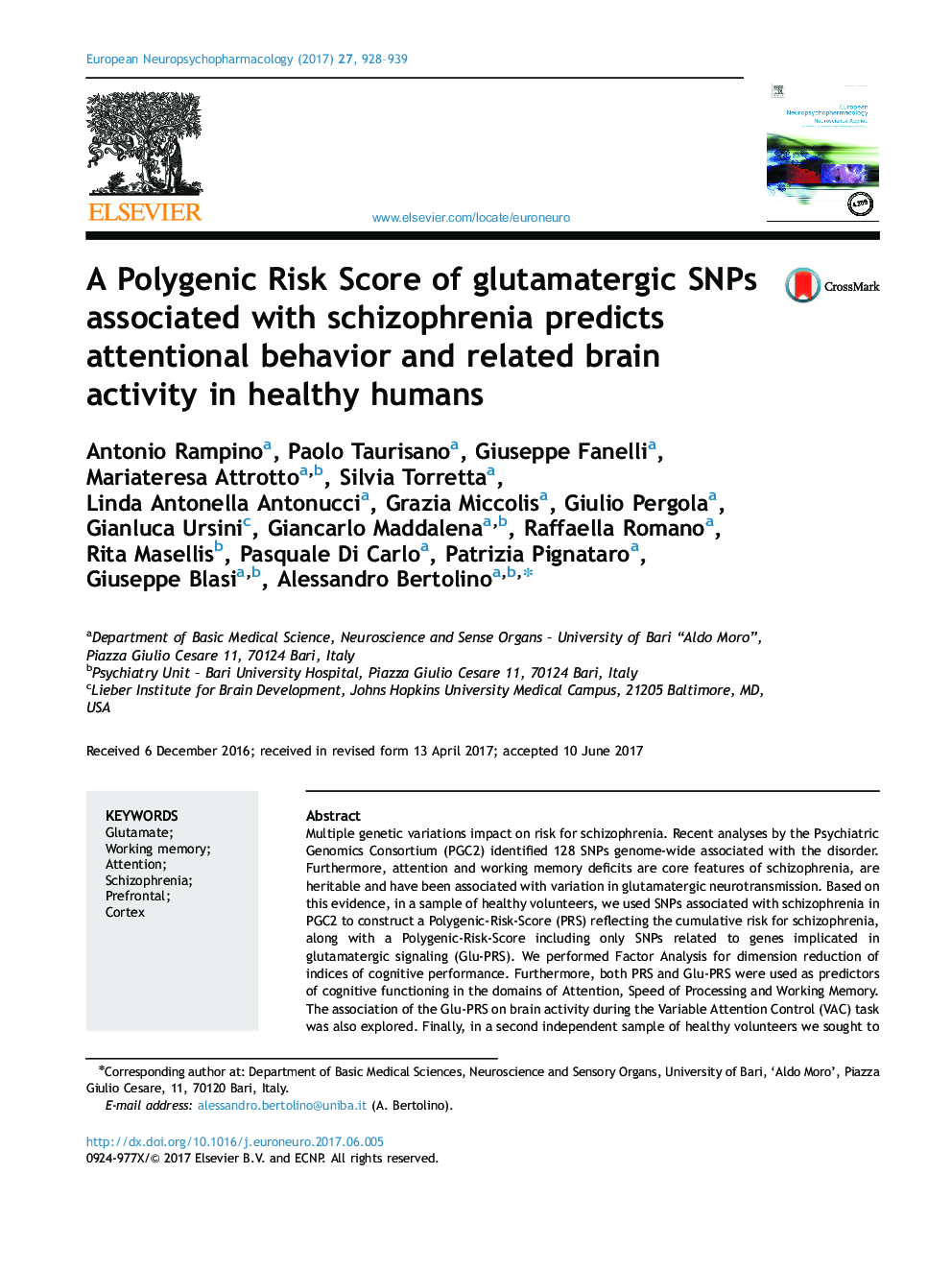| Article ID | Journal | Published Year | Pages | File Type |
|---|---|---|---|---|
| 4930310 | European Neuropsychopharmacology | 2017 | 12 Pages |
Abstract
Multiple genetic variations impact on risk for schizophrenia. Recent analyses by the Psychiatric Genomics Consortium (PGC2) identified 128 SNPs genome-wide associated with the disorder. Furthermore, attention and working memory deficits are core features of schizophrenia, are heritable and have been associated with variation in glutamatergic neurotransmission. Based on this evidence, in a sample of healthy volunteers, we used SNPs associated with schizophrenia in PGC2 to construct a Polygenic-Risk-Score (PRS) reflecting the cumulative risk for schizophrenia, along with a Polygenic-Risk-Score including only SNPs related to genes implicated in glutamatergic signaling (Glu-PRS). We performed Factor Analysis for dimension reduction of indices of cognitive performance. Furthermore, both PRS and Glu-PRS were used as predictors of cognitive functioning in the domains of Attention, Speed of Processing and Working Memory. The association of the Glu-PRS on brain activity during the Variable Attention Control (VAC) task was also explored. Finally, in a second independent sample of healthy volunteers we sought to confirm the association between the Glu-PRS and both performance in the domain of Attention and brain activity during the VAC.We found that performance in Speed of Processing and Working Memory was not associated with any of the Polygenic-Risk-Scores. The Glu-PRS, but not the PRS was associated with Attention and brain activity during the VAC. The specific effects of Glu-PRS on Attention and brain activity during the VAC were also confirmed in the replication sample.Our results suggest a pathway specificity in the relationship between genetic risk for schizophrenia, the associated cognitive dysfunction and related brain processing.
Related Topics
Life Sciences
Neuroscience
Biological Psychiatry
Authors
Antonio Rampino, Paolo Taurisano, Giuseppe Fanelli, Mariateresa Attrotto, Silvia Torretta, Linda Antonella Antonucci, Grazia Miccolis, Giulio Pergola, Gianluca Ursini, Giancarlo Maddalena, Raffaella Romano, Rita Masellis, Pasquale Di Carlo,
